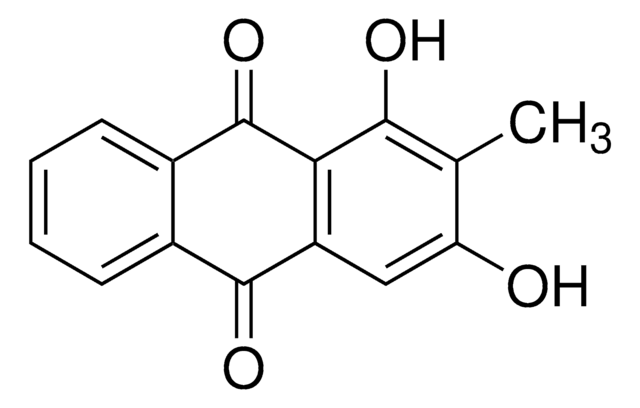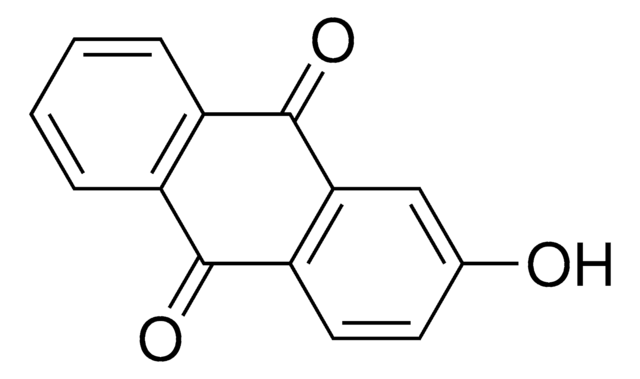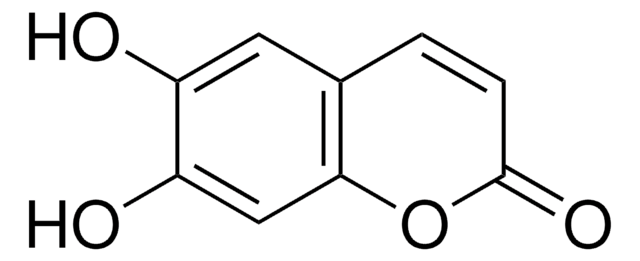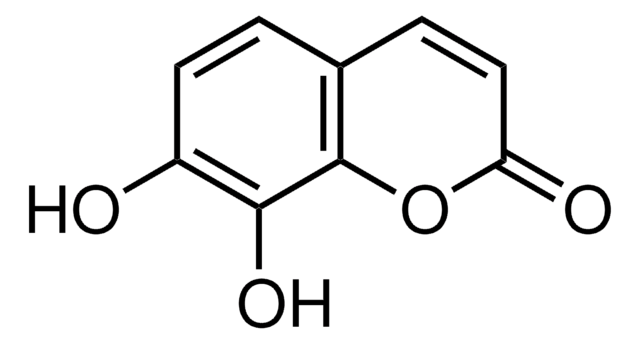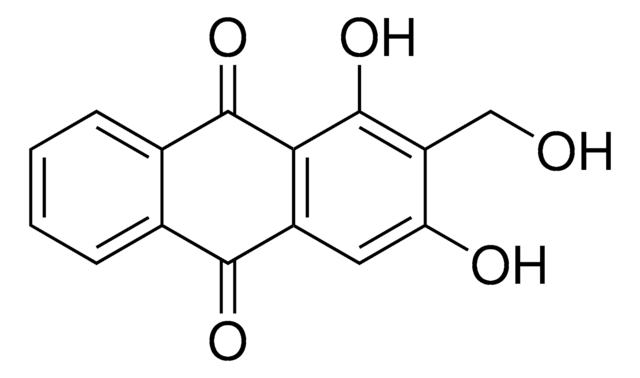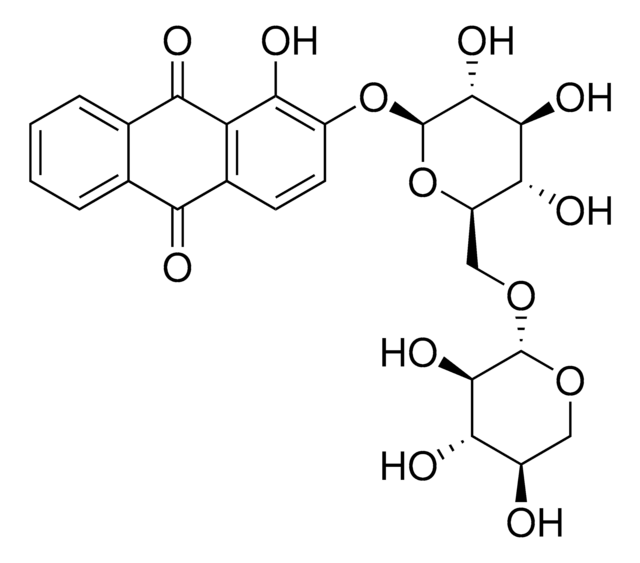74553
Rubiadin
analytical standard
Synonym(s):
1,3-Dihydroxy-2-methyl-9,10-anthracenedione, 1,3-Dihydroxy-2-methylanthraquinone
About This Item
Recommended Products
grade
analytical standard
Quality Level
Assay
≥95.0% (HPLC)
shelf life
limited shelf life, expiry date on the label
technique(s)
HPLC: suitable
gas chromatography (GC): suitable
application(s)
food and beverages
format
neat
SMILES string
O=C1C2=C(C=C(O)C(C)=C2O)C(C3=CC=CC=C31)=O
InChI
1S/C15H10O4/c1-7-11(16)6-10-12(13(7)17)15(19)9-5-3-2-4-8(9)14(10)18/h2-6,16-17H,1H3
InChI key
IRZTUXPRIUZXMP-UHFFFAOYSA-N
Looking for similar products? Visit Product Comparison Guide
Application
Signal Word
Warning
Hazard Statements
Precautionary Statements
Hazard Classifications
Acute Tox. 4 Oral - Carc. 2
Storage Class Code
11 - Combustible Solids
WGK
WGK 3
Flash Point(F)
Not applicable
Flash Point(C)
Not applicable
Choose from one of the most recent versions:
Already Own This Product?
Find documentation for the products that you have recently purchased in the Document Library.
Our team of scientists has experience in all areas of research including Life Science, Material Science, Chemical Synthesis, Chromatography, Analytical and many others.
Contact Technical Service